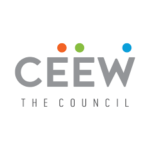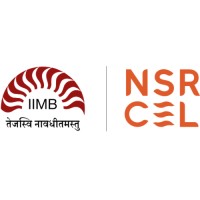
Website CEEW - Council on Energy, Environment and Water
About us
The Council on Energy, Environment and Water (CEEW) is one of South Asia’s leading not-for-profit policy research institutions. The Council uses data, integrated analysis, and strategic outreach to explain – and change – the use, reuse, and misuse of resources. The Council addresses pressing global challenges through an integrated and internationally focused approach. It prides itself on the independence of its high-quality research, develops partnerships with public and private institutions, and engages with the wider public.
In 2019, CEEW once again featured extensively across nine categories in the 2018 Global Go To Think Tank Index Report, including being ranked as South Asia’s top think tank (15 th globally) with an annual operating budget of less than USD 5 million for the sixth year in a row. CEEW has also been ranked as South Asia’s top energy and resource policy think tank in these rankings. In 2016, CEEW was ranked 2nd in India, 4 th outside Europe and North America, and 20 th globally out of 240 think tanks as per the ICCG Climate Think Tank’s standardised rankings.
In nine years of operations , The Council has engaged in over 230 research projects, published over 160 peer-reviewed books, policy reports and papers, advised governments around the world nearly 530 times, engaged with industry to encourage investments in clean technologies and improve efficiency in resource use, promoted bilateral and multilateral initiatives between governments on 80 occasions, helped state governments with water and irrigation reforms, and organised nearly 300 seminars and conferences.
The Council’s major projects on energy policy include India’s largest multidimensional energy access survey (ACCESS); the first independent assessment of India’s solar mission; the Clean Energy Access Network (CLEAN) of hundreds of decentralised clean energy firms; the CEEW Centre for Energy Finance; India’s green industrial policy; the USD 125 million India-U.S. Joint Clean Energy R&D Centers; developing the strategy for and supporting activities related to the International Solar Alliance; designing the Common Risk Mitigation Mechanism (CRMM); modelling long-term energy scenarios; energy subsidies reform; energy storage technologies; India’s 2030 Renewable Energy Roadmap; energy efficiency measures for MSMEs; clean energy subsidies (for the Rio+20 Summit); Energy Horizons; clean energy innovations for rural economies; community energy; scaling up rooftop solar; and renewable energy jobs, finance and skills.
The Council’s major projects on climate, environment and resource security include advising and contributing to climate negotiations in Paris (COP-21), especially on the formulating guidelines of the Paris Agreement rule-book; pathways for achieving Nationally Determined Contributions (NDCs) and mid-century strategies for decarbonisation; assessing global climate risks; heat-health action plans for Indian cities; assessing India’s adaptation gap; low-carbon rural development; environmental clearances; modelling HFC emissions; the business case for phasing down HFCs; assessing India’s critical minerals; geoengineering governance; climate finance; nuclear power and low-carbon pathways; electric rail transport; monitoring air quality; the business case for energy efficiency and emissions reductions; India’s first report on global governance, submitted to the National Security Adviser; foreign policy implications for resource security; India’s power sector reforms; zero budget natural farming; resource nexus, and strategic industries and technologies; and the Maharashtra-Guangdong partnership on sustainability.
The Council’s major projects on water governance and security include the 584-page National Water Resources Framework Study for India’s 12 th Five Year Plan; irrigation reform for Bihar; Swachh Bharat; supporting India’s National Water Mission; collective action for water security; mapping India’s traditional water bodies; modelling water-energy nexus; circular economy of water; participatory irrigation management in South Asia; domestic water conflicts; modelling decision making at the basin-level; rainwater harvesting; and multi-stakeholder initiatives for urban water management.
Job Description
Council on Energy, Environment and Water (CEEW), New Delhi
Programme Associate – Environmental Outcomes and Energy Use
Terms of Reference
At CEEW, we are deliberate about what we stand for (and what we don’t stand for!) as an employer. So, if the below description strikes a chord, we would love to hear from you!
At CEEW, we build careers in public policy
- We offer strong visionary leadership – with emphasis on research and impact at scale
- We actively promote leadership by initiative
- We celebrate talent and ambition
- You will be surrounded by smart ambitious people who will challenge you and help you grow
- You will learn faster than your peers in other organisations
- Curiosity and irreverence, as well as responsibility, come together at CEEW
- You will get above-market remuneration
- We provide a safe space for all
- At CEEW, your life is your example for others
Designation offered:
Programme Associate
Reporting to:
Programme Lead (TPPs, Coal and EE)/Programme Lead (AQ)
Location:
New Delhi
Purpose
CEEW seeks to hire a Programme Associate to expand its work on understanding the interlinkages between emissions from thermal power plants, industrial production and air quality, across India’s geography, with a special focus on the IGP. The chosen candidate will work across the power, industry and air quality teams to qualitatively and quantitatively assess performance of thermal power plants and industrial units – by assessing environmental compliance in meeting emissions standards, fly-ash generation and management and water use and disposal. The candidate should be open to travelling, visiting areas impacted by emissions from various large point sources and engage with relevant government and civil society stakeholders in driving environmental compliance.
Job Duties and Accountabilities:
Research and programme assistance
- To document and analyse the environmental performance of large point sources – power plants and industrial units, by using relevant government data and other sources.
- To conduct qualitative interviews with power generating companies, power plant operators and industrial units and regulators – power and environment, to understand the extent of penetration of pollution control technology and monitoring of emissions
- To conduct analyses to evaluate the costs and benefits to retrofit production units with pollution control and mitigation technologies
- To continuously track technological developments in the clean technology industry
- To develop new and improve existing methodologies on assessing interlinkages between variations in power generation, industrial activity and environmental metrics
- To assess the opportunities to improve emissions performance through policies such as fuel switching, market incentives and deepening to allow for renewables in the energy mix
- To provide research content for the organisation’s web pages, blogs, issue briefs, etc
- To engage with relevant stakeholders from industries, government, policy experts, academicians
- To participate in relevant conferences, workshops, training programmes for a comprehensive understanding of air quality management in India and globally
Shortlisting Criteria
Education and experience
- Master’s degree in environmental, mechanical or energy engineering or related disciplines
- Familiarity with power plant operations and thermal energy applications in industries, understanding of pollution control technology in industries and stack emissions measurement systems.
- Prior experience of working on emission assessments, air quality data analysis and data visualisation.
Main Skills
- Strong analytic skills including quantitative research skills
- Experience in working with QGIS, MS Office suite.
- Experience in working with data manipulation tools such as Stata, R or Python would be an added bonus
- Good oral and written communication skills
- Experience in engaging with relevant stakeholders from the government and industry.
Personality
- Willingness to learn new (research and project management) skills
- Ability to adapt to the new environment and deliver under tight deadlines in a professional environment
- Striving for rigour in research and quality in work output
- Ability to effectively work in a team while being able to independently drive research with minimum assistance, when time demands
- Ability to dig deeper into details, while also keeping a sense of the broader objectives and big picture
- Willingness to learn, grow and develop at personal and professional front, at a rapid pace with a steep learning curve
- Ability to work in an interdisciplinary and multicultural environment
CEEW operates in a dynamic environment and the candidate will be required to show flexibility in undertaking a variety of tasks.
Compensation
Competitive compensation – commensurate to the experience and matching the best of standards adopted by industry or other similar organizations for similar roles.
Application Process
CEEW is an equal opportunity employer, and the selection process does not discriminate on the basis of age, gender, caste, ethnicity, religion, or sexuality. Female candidates are encouraged to apply. Applications will be reviewed on a rolling basis. Interested applicants are advised to apply at the earliest possible.
To apply for this job please visit ceew.zohorecruit.in.





